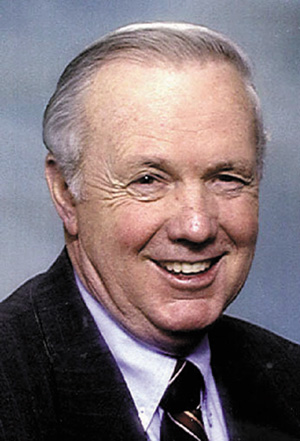No. 658 - EVER SERVE ON A JURY?
No. 658
Jim Davidson -- NEWSPAPER COLUMN
EVER SERVE ON A JURY?
One time I heard a story about this lady who went to a famous artist and requested that he paint a portrait of her. He reluctantly agreed, and after several sittings he finally finished the portrait. When it was unveiled for her to see, she took a close look at it and said, “This portrait does not do me justice.” The artist replied, “Lady, you don’t need justice, you need mercy.”
Don’t we all need mercy when it comes to getting what we really deserve? If we can’t get that, most of us would settle for justice, which is what our system of laws is based on in this country. If our transgression against the law is severe enough, and we don’t plead guilty, we usually wind up in court and have a group of our fellow citizens arbitrate our case or decide whether we are guilty or innocent.
This scene is played out thousands of times each day in courtrooms all across America, and many of us at one time or another have been called to serve on a jury. I have been called to serve on a jury a couple of times here in our community. One case involved a property dispute and the other was a case of assault and battery. In the first case I was selected by my fellow jurors to be the foreman, and we reached a verdict very quickly. In the other, I was excused because the defense attorney did not think I would be sympathetic to the defendant’s case. When I checked out the spelling of the word “sympathetic,” if you leave off the sym, what you have left is pathetic. I plead guilty.
Now, this question please. Have you ever been called to serve on a jury? When I thought about this question, it brought up another one. What are the qualifications to serve on a jury in our country? Thanks to Lt. Danny Moody, a member of our local police department, I got the answer. To be legally qualified for jury service, an individual must be a United States citizen; be at least 18 years of age; reside primarily in the judicial district for one year; be adequately proficient in English; have no disqualifying mental or physical condition; not currently subject to felony charges; and never have been convicted of a felony (unless civil rights have been legally restored.)
There are three groups that are exempt for federal jury service: members of armed forces on active duty; members of fire and police departments; and “public officers” of federal, state and local governments who are actively engaged in the performance of public duties. To be sure, juries decide all kinds of cases, and for those who serve it can be a rewarding experience because of the personal satisfaction of knowing they meted out justice, performed their civic responsibility, and also did the right thing for those involved in the case. After the verdict comes in for every trial, there are those in the courtroom who have joy, while others have sorrow. That’s the nature of justice.
On the other hand, there are many cases that come before a jury that are traumatic and leave members of the jury with mental and emotional scars they will carry with them to their grave. My friend, Jo Anderson, shared one such case with me and I felt it would confirm what I am saying. Following is a letter from a friend of Jo’s after she had served on a jury. It begins, “I knew someday I’d have to do my civic duty and serve on a jury. But never in my life did I ever think I would be selected to serve on a first-degree murder case. In spite of the horrific crime that was committed, we spent two days listening to testimony and one day of deliberation. We found the man guilty.
“It was the right decision based on the instructions we were given, but one I shall find myself questioning for years to come. I was not prepared for the sadness, the pain, the hurt, the anger. I’ve always enjoyed ‘CSI’ and the such, but there was no comparison to what transpired in that courtroom this past week. The other members of the jury were incredible people with such integrity and purpose. There was an instant sense of camaraderie, a bond that we will share for the rest of our lives. We cried together, we laughed together and in the very end, we were one unanimous voice in the name of justice.
“It’s kind of funny in a peculiar way -- yesterday 12 people forever changed the lives of many families. Some for good and some not. But in the end, each of us knew in our heart, it was the right decision, the just decision. I’m sharing this because we all know that lives can change in the blink of an eye. We should never get so busy that we take tomorrow for granted.”
If you have never served on a jury, I hope that someday you will have this opportunity. Having to convict and lock up another human being may help you have a greater appreciation for your own freedom.
---
(EDITOR'S NOTE: Jim Davidson is a public speaker and syndicated columnist. You may contact him at 2 Bentley Drive, Conway, AR 72034. To support literacy, buy his book: “Learning, Earning & Giving Back.”)
